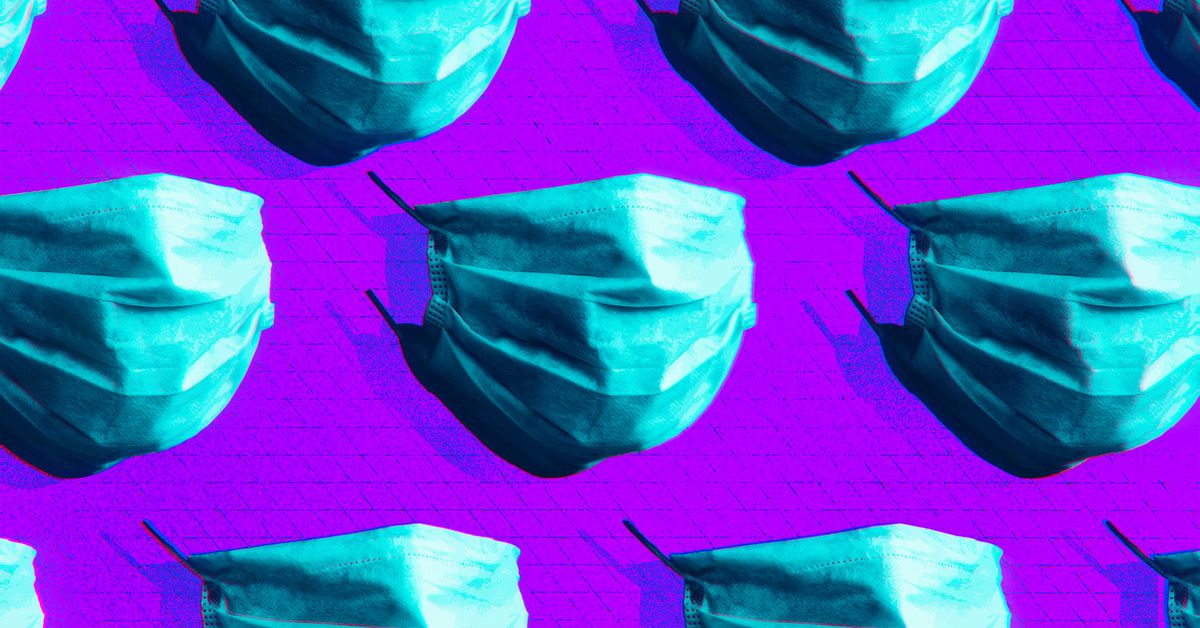
Millions of people in the US started buying face masks in 2020, and companies, unsurprisingly, rushed to take advantage of the surge of demand for a new product. At CES 2021, the gadget-ification of the mask was on full display. Leading the pack was Razer’s transparent voice-amplifying, light-up concept mask. AirPop promoted its Active+ Smart Mask, which monitors users’ breathing rates and alerts them via a smartphone app when the mask’s filter needs changing. Binatone’s MaskFone has built-in earbuds and a mic for phone calls.
Turning masks into a status symbol is nothing new, nor is capitalizing on a disaster to make a buck. Before the pandemic, people wore masks to protect from air pollution, and they’re fashion items in China and India. Also before the pandemic, companies making masks advertised for that purpose were starting to enter the US market. Last year at CES, Ao Air announced a $350 air pollution-filtering gadget.
Techy masks to protect against COVID-19 aren’t necessarily bad things. Health officials are doubling down on the messaging to cover your nose and mouth as cases surge through the country, and a sweeping review of the scientific evidence published this month confirmed, yet again, that masks work. Razer told The Verge it plans to work with medical experts if it ever decides to produce and sell its mask. Its concept mask has the dangerous and warned-against exhalation valve, but Razer says the mask would have a filter to block any virus exhaled by the wearer.
But a gimmick arms race won’t necessarily make masks work better. We need better masks for everyone, not just stylish products for people who can afford them. In the United States, nearly a year into the pandemic, most people are still wearing cloth masks, which are better than nothing, but not the best way to block the virus. Cloth masks were supposed to be a stop-gap until officials could scale up production of medical-grade masks, but those never materialized. Meanwhile, Taiwan is distributing high-quality masks to citizens, and Germany is requiring N95-equivalent masks in stores.
Without federal action on masks, people are left on their own to find and purchase them. There aren’t good criteria for cloth masks, making it hard to figure out which offer the best protection. There are counterfeit medical-grade masks all over the country. It’s a crowded, confusing area, and gadgets jostle for space alongside slap bracelet masks and rhinestones.
“We routinely get PR pitches for excellent new solutions as well as snake-oil remedies, and we sometimes have trouble telling them apart—how is an ordinary person supposed to evaluate competing claims?” Zeynep Tufekci and Jeremy Howard wrote in The Atlantic.
To combat the pandemic, the US needs effective masks to be distributed as a public health service. Instead, masks of all sorts are seen and marketed as commercial products. Companies selling light-up masks aren’t creating this problem, and if the flash helps someone to put one on, it’s a victory. But these flashy contributions just highlight how far we still have to go before we have simple and effective protection for everyone.
Here’s what else is going on this week.
Research
The Future of the Coronavirus? An Annoying Childhood Infection
After the pandemic ends, COVID-19 could gradually become more like a childhood cold than a deadly disease, new research suggests. With vaccines, that transformation could happen quickly. (Apoorva Mandavilli, The New York Times)
No ICU beds? Expect double the number of Covid-19 deaths.
The death risk from COVID-19 isn’t static. It changes depending on the quality of care doctors are able to provide. When intensive care units are full, people are more likely to die from the disease. (Julia Belluz, Vox)
Covid-19 deaths are the highest they’ve ever been — and the more infectious variants could make things much worse
The new coronavirus strain gaining a foothold in the United States isn’t more deadly, but it’s more contagious. It’s a scary scenario anyway: faster-spreading infections still mean more deaths. (Andrew Joseph, Stat News)
Development
Once you and your friends are vaccinated, can you quit social distancing?
Getting vaccinated isn’t a free pass to act like the pandemic is over, but as people around you start to get vaccinated, life will start to return to normal. The transition will happen in stages until the pandemic settles worldwide. (Sigal Samuel, Vox)
J&J’s one-shot Covid vaccine is safe and generates promising immune response in early trial
Johnson & Johnson’s vaccine is next in the pipeline, and early data shows that it can generate an immune response in just one dose. The company should release data on its efficacy later this month. (Berkeley Lovelace Jr., CNBC)
Perspectives
I am angry that after I spent months carefully isolating myself, a single chaotic day likely got me sick. I am angry that several of our nation’s leaders were unwilling to deal with the small annoyance of a mask for a few hours. I am angry that the attack on the Capitol and my subsequent illness have the same cause: my Republican colleagues’ inability to accept facts.
— Rep. Bonnie Watson Coleman (D-NJ) writes in The Washington Post after testing positive for COVID-19 following the Capitol riots.
More than numbers
To the more than 93,604,952 people worldwide who have tested positive, may your road to recovery be smooth.
To the families and friends of the 2,003,885 people who have died worldwide — 390,809 of those in the US — your loved ones are not forgotten.
Stay safe, everyone.
https://www.theverge.com/2021/1/16/22233507/ces-masks-covid-pandemic-capitol-antivirus

